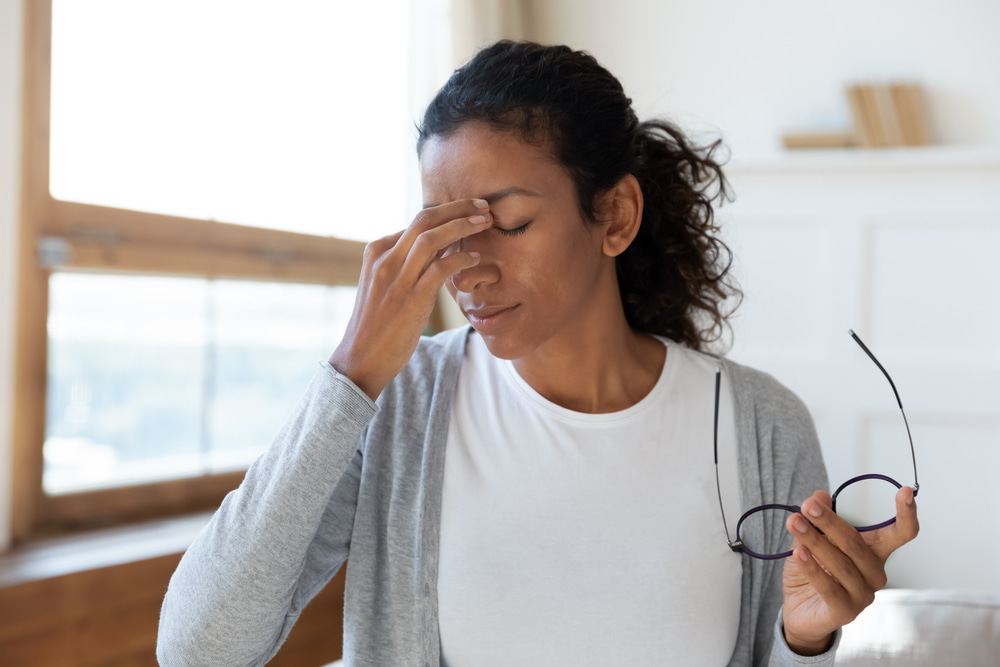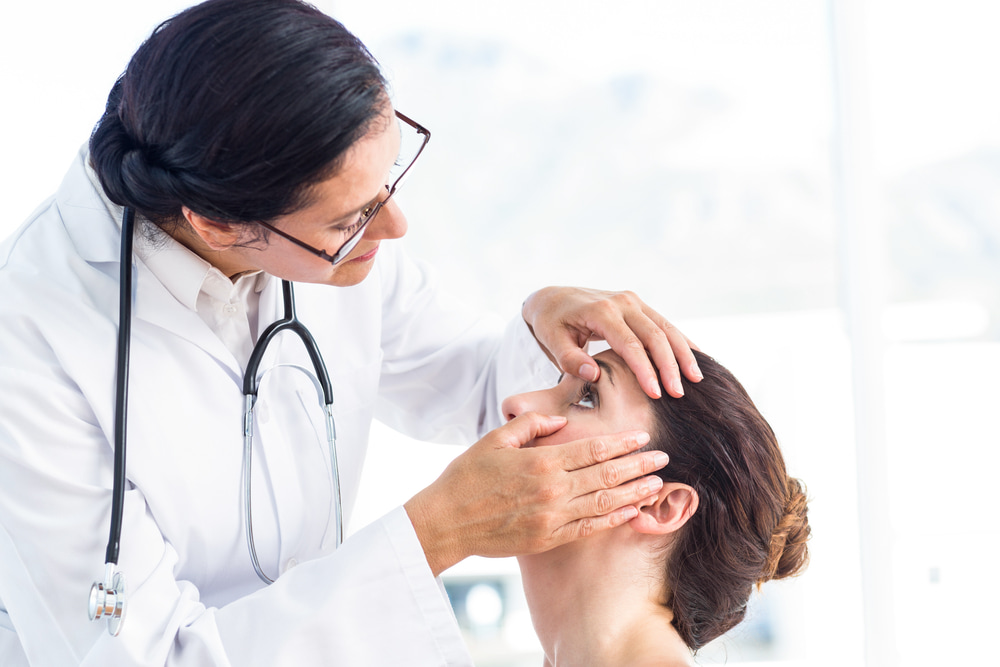Dry eyes are a common condition that is often irritating to deal with. Understanding a bit more about dry eyes and how to manage the symptoms can lead to an improved quality of life for both you and your eyes.
What Are Dry Eyes?
Dry eyes are a condition in which tear ducts can’t provide sufficient lubrication to the eye. There can be several underlying causes, and dry eyes can be a chronic or temporary condition.
It is important to seek treatment for dry eyes, especially in chronic cases. If left untreated, dry eyes can have a noticeable impact on your vision and can damage your eyes.
Do’s and Don’ts
When you have dry eyes, you may attempt certain methods and remedies in hopes that they’ll work. You should know why some of these methods will work, and why others won’t work reliably or may be harmful.
#1. Do Avoid Eye Irritants
Things like smoke, dust, and dry air can irritate our eyes and cause symptoms of dry eyes to worsen. Avoid these irritants when possible, and try to protect your eyes from them using safety glasses.
#2. Don’t Rely on Over-the-Counter Eye Drops
Over-the-counter eye drops won’t generally harm your eyes, but they won’t cure your dry eye syndrome if there is an underlying cause. Artificial tears can offer temporary relief for dry eyes caused by environmental conditions or from looking at a computer screen for extended periods.
However, over-the-counter eye drops will not target many of the underlying causes of dry eyes and therefore aren’t a reliable treatment. You may need medicated drops that an optometrist can prescribe to see results.
#3. Do Give Your Eyes Proper Rest
Watching screens for long periods can make dry eye symptoms worse. When using computers or phones, you should take breaks from looking at the screen. You should approach any activity that similarly strains your eyes. If you find your eyes are getting tired, try and do something else that doesn’t cause as much strain.
You also should get enough sleep each night. Sleep is important for many reasons, and your eye health is one of them.

#4. Don’t Use Soaps or Shampoo on Your Eyes
Do not put soap or shampoo products on or near your eyes. If you have something in your eye, flush it with clean water. It is important to keep irritants out of your eyes, but you should only use water to rinse them. Soaps will only cause severe irritation, which will be worse if you have low tear production.
#5. Do Improve Your Diet
Adding more sources of vitamin A or omega 3 can help maintain the health of your eyes. You may also want to avoid over-consuming substances that make you dehydrated, such as alcohol.
Though there isn’t consensus about the optimal intake level of omega 3 for dry eyes specifically, a diet rich in omega 3 can improve dry eye symptoms as well as your overall health. Foods that contain omega 3 include:
- Fish (such as mackerel, herring, cod, and salmon)
- Flaxseed
- Shellfish
- Chia seeds
- Canola oil
- Walnuts
- Peanuts
- And more
#6. Don’t Spend Too Much Time in Air Conditioned or Heated Spaces
Dry air can cause your eyes to dry out. If your eyes do not produce adequate moisture on their own, you will likely find that dry eye symptoms start or worsen when you spend extended periods in air conditioning or heating.
#7. Do Hydrate and Use a Humidifier
Staying hydrated will ensure your body has enough fluids to maintain essential functions. Using a humidifier will keep the air in your environment from becoming too dry, which will help prevent dry eye symptoms.
#8. Do Consider Underlying Causes
Many things can cause dry eyes outside of environmental conditions and external irritants. Dry eyes result from a decrease or complete lack of tear production caused by damage to the tear glands or dehydration. Other potential causes are:
- Aging
- Menopause
- Inflamed eyelid glands
- Ocular allergies
- Poor eye hygiene
- And more
If your dry eyes are due to a different, underlying issue, then the usual treatments for dry eyes may be ineffective in the long term. If regular treatments aren’t producing results, it may be time to see a doctor.
#9. Do Consult With an Eye Care Professional

If your dry eyes impact your quality of life, you should consider scheduling an appointment with an eye care professional. An optometrist can assess your condition and symptoms to determine the best course of action to take. They will help you manage your dry eyes.
Consulting with a professional may also help you identify any particular irritants or environmental conditions that are especially aggravating. Some optometrists even specialize in dry eyes and can answer any questions about your condition.
Your optometrist has access to treatment options and methods that will be more effective at treating your symptoms. They can recommend certain brands of over-the-counter eye drops, or prescribe a better medication or steroid eye drops as means of treatment. A professional will also be aware of any other procedures you can undergo as a treatment for dry eyes.
Contact Art of Optiks today to schedule an appointment with our experienced care team.

